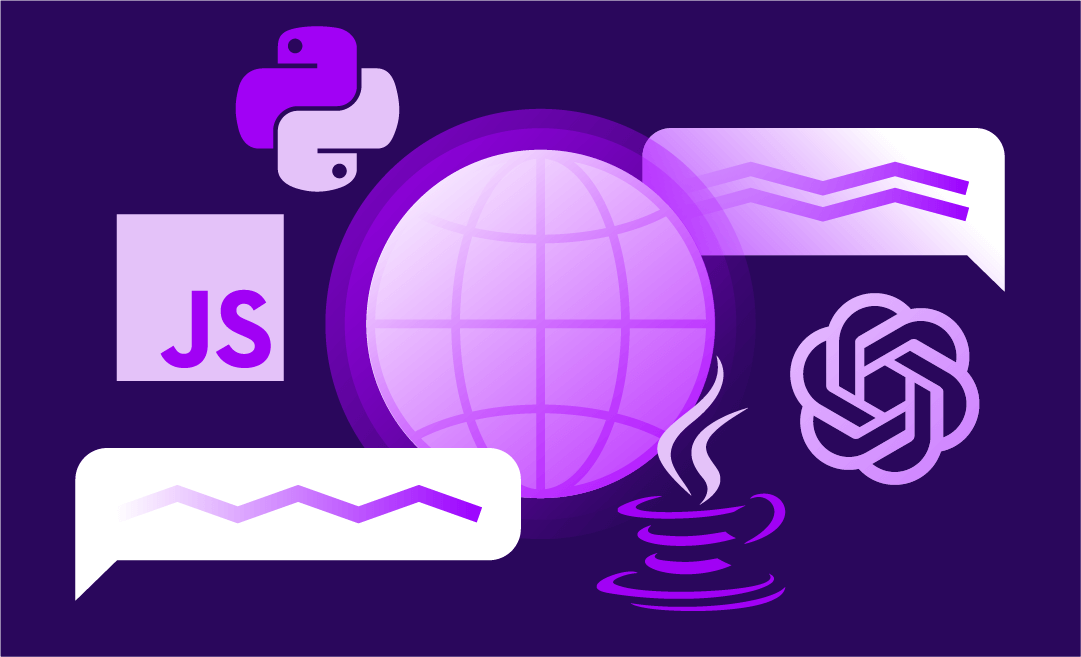Can You Become a Software Engineer Without a Degree? Exploring the Need for Formal Education in Software Engineering
The author of this article is tech expert Pieter Murphy.

Becoming a software engineer without a degree is something you can do, as the tech industry values skills over formal education. This article will explore the steps you can take to pave your way into software engineering without a degree.
But first, let's explore some of the basic skills you need and consider some of the advantages of having a degree.
What skills do you need as a software engineer?
When considering becoming a software engineer without a CS degree (Computer Science), skills are more important than impressive-looking credentials. Below is a short list of skills you need in the field:
- Programming languages: This might include Java, Python, C++, and more proficiency.
- Problem-solving: You need to be able to analyze complex problems, break them down into smaller components, and devise effective solutions.
- Communication: You need to communicate effectively to understand project requirements and provide updates on progress.
- Team skills: You need to take that effective communication to the next level with team skills that include accepting feedback and collaboration.
You don't get these skills by sitting in a classroom. But regardless, having a CS degree includes some distinct advantages.
Advantages of computer science degree
Having a Computer Science (CS) degree can provide several advantages in the field of software engineering. Here are some key benefits:
- Broader understanding: Obtaining a CS degree allows individuals to comprehensively understand basic computer science concepts.
- Programming language proficiency: A CS degree program typically helps individuals become proficient in one language, but skills to help them expand.
- More job prospects: CS degree programs provide recognizable proof you have a potential skill set for software engineering.
- Guided learning: Because professors are often former programmers, they can teach you with their knowledge.
CS degrees have distinct advantages to them. But regardless, if you want to prepare for the profession of the future, you might not need a degree.
Do you need a degree to be a software engineer?
The short answer is no. You do not need a degree in software engineering. With the right skills, experience, and attitude, you can become a successful software engineer without having a degree in computer science or related fields. Many companies are willing to hire talented individuals with the necessary skills regardless of their formal educational background.

How to become a software engineer without a degree
You can take numerous paths to get into software engineering without a degree and build a rewarding career. Below are some actionable steps you can take.
1. Enroll in a course, get a certification
Enrolling in a course and obtaining a certification as a software engineer without a degree is a great way to enhance your knowledge, gain credibility, and improve your resume. Here are some trusted sites you don't have to pay much for:
The list above won't provide you with any certifications. However, you can make that up by pursuing a trusted certificate. Consider the Professional Software Developer Certification, Certified Secure Software Lifecycle Professional, or Certified Entry-Level Python Programmer certifications.
If you want to learn from the same place you can get a certification, consider trusted sites like Coding Dojo, Flatiron School, or Lambda School. Because these certifications leverage knowledge directly from the course you are learning, you'll increase your chances of getting certified.
Certifications don't hold the same weight as degrees, but they prove you know something. Often, that something is enough to start some conversations. What you need next is a bit of experience.
2. Practice with coding projects
Practicing is one of the best ways to become a software engineer without a degree.
When choosing coding projects, consider what you want to specialize in. This could be web development, mobile applications, data analysis, or artificial intelligence, to name a few. Start with small projects that you can complete within a reasonable timeframe. This will help you build confidence and gradually increase the complexity of your projects as you gain more experience.
3. Network with other programmers
Networking plays a crucial role in the software engineering field as it helps establish connections with industry peers. These connections can lead to job opportunities, project collaboration, and valuable mentorship.
Consider networking by attending industry events or tech meetups. You can also look for hackathons that help you meet with fellow engineers. Of course, you can also use sites like LinkedIn, GitHub, or online communities of fellow programmers.
4. Practice analyzing and reading code
Analyzing and reading code is an essential skill for any software engineer. It allows you to understand how programs work, identify areas for improvement, and learn from existing codebases.
Typically, you'll want to start by reading other people's work. Open-source projects provide a wealth of code to analyze and read, showing how experienced developers have solved various problems.
Additionally, consider participating in code review process or pair programming sessions with other software engineers. Discussing lets you learn from each other's approaches, techniques, and best practices.
Then, take the time to apply your new understanding to your current code. Ask yourself how you can improve it and how others do it better (or worse). Always be improving.
5. Build a portfolio
A portfolio showcases your skills, knowledge, and experience to potential employers and clients. To create an impressive software engineering portfolio, consider including the following key elements:
- Examples of previous work: Include a collection of projects and applications you have worked on.
- List of technologies and programming languages: Outline the programming languages, frameworks, libraries, and tools you are proficient in.
- Project descriptions: Give detailed descriptions of your projects, including the problem statement, your approach to solving it, and the outcome.
- Design process information: Explain your design process when developing software.
When creating these portfolios, don't forget your certifications. You should also make it easy for people to contact you, as you might have a lucky opportunity.
6. Get feedback from professionals
Receiving feedback from industry professionals is a crucial step in becoming a successful software engineer. It allows you to gain insights and improve your coding projects based on the expertise and experience of those working in the field.
Start by respecting the time of people who have more expertise. Respect goes a long way to getting people to give you feedback. If you can, share your code with them. Just be sure you check in with your company before doing this.
Once you get the feedback, be thankful for the expert's time, and don't be afraid of negative feedback. You can gain valuable insights and elevate your coding by seeking feedback from industry professionals.
Feedback is like receiving a grade, so if you want to become a software programmer without a degree, feedback is vital.
7. Search related jobs
While you may not land a software engineering role right away, a related job can provide valuable exposure and experience in the field. Here are some tips to help you in your job search:
- The "nearby" job hunting strategy: If moving from your old role, consider moving to the same (or similar) positions that will get you near software engineers. Being nearby helps you learn about the job.
- Pay attention to the degree requirements: Look out for job postings explicitly stating "no degree required" or "equivalent experience accepted." These companies are more likely to consider candidates without a formal degree.
- Research potential employers: Look for companies known for their commitment to diversity, inclusion, and providing opportunities for self-taught individuals.
- Attend meetup groups: As part of your networking, Attend meetup groups (offline or online) where tech professionals gather.
Be proactive if you want to work as a software engineer without a degree.
By taking a proactive approach to your job search, you can increase your chances of finding opportunities to eventually transition into a software engineering role.
8. Practice your interview skills
The interview process lets you showcase your technical skills, problem-solving abilities, and fit for the role. But you need practice to make it work. Here are the interviews you need to look out for:
- Technical interviews: These assess your technical knowledge and coding skills. They often involve solving algorithmic problems, writing code, and analyzing code snippets.
- Live tests: Some companies may conduct live tests during the interview process to evaluate your ability to work under pressure and deliver results within a time constraint. Practicing live tests can help you improve your time management skills and simulate the pressure of real-time coding tasks.
- Behavioral Interviews: Tech companies also evaluate your soft skills and ability to work collaboratively. Behavioral interviews assess your communication skills, problem-solving approach, and cultural fit for the company.
To prepare yourself for these interviews, you need to practice your skills. If you can, speak with people who have interviewed there.

How much does a software engineer make without a degree?
The average software engineer in the United States makes at least $70 thousand. So, it's safe to assume that software engineers without a degree are just below this threshold.
Like those with degrees, factors such as years of experience, location, and the type of employment contract can significantly influence the salary range for software engineers without a degree. At a certain point, you don't need to prove yourself with a college degree.
Becoming a software engineer without a degree: three alternatives in learning
Below are three college degree alternatives to bulk up on learning.
Boot camps
Boot camps are intensive training programs offering a shorter, more focused approach to learning the necessary skills and knowledge to excel in this field. With boot camps, aspiring software engineers can gain industry-relevant skills in months.
Bootcamps have two major advantages: costing very little (compared to college) and providing a focused curriculum. By focusing on core skills, you can save time and money. So, if you want to leverage the knowledge and other data science materials for self-study, bootcamps are a solid choice.
Self-directed learning
Self-directed learning in software engineering offers flexibility and affordability, allowing individuals to learn at their own pace and schedule. With online resources, aspiring software engineers can access many learning materials, tutorials, and practice exercises.
Self-directed courses are found on sites like Coursera and Udemy. Since these are under your control, you learn at your own pace, allowing you to spend more time on challenging problems. Self-directed learning is also cheaper than going through a BootCamp.
Self-directed learning has one problem: lack of external direction. You can learn bad coding habits Without a professor or coder nearby.
Books, tutorials, and podcasts
In addition to online courses and coding bootcamps, books, tutorials, and podcasts can be valuable tools for self-learners. These resources provide in-depth explanations, practical examples, and insights from industry experts, allowing individuals to learn at their own pace and explore specific topics of interest.
Books are a classic resource for self-directed learning. One highly recommended book for software engineers is "Code Complete: A Practical Handbook of Software Construction" by Steve McConnell. This book covers various software development topics worth looking into. There are also other books for studying the profession of software engineering.
Online platforms like YouTube and Medium offer an alternative. For example, Derek Banas's YouTube channel provides Java, Python, and web development tutorials.
Listening to podcasts like Coding Blocks can be another great way to stay up-to-date with the latest trends in the software engineering industry.
Conclusion
Is a degree required to be a software engineer? It depends. Becoming a software engineer without a degree is not only possible but can also be a rewarding and fulfilling career path. The tech industry offers many job opportunities and high salaries, making it an attractive field for those interested in software development.
Self-taught learning, online certifications, and coding bootcamps have emerged as viable alternatives to formal education in software engineering. Once you feel comfortable, start building your resume, building connections, and growing your portfolio. Start small and surround yourself with industry experts until you find the right fit.
FAQ
What is software engineering?
Software engineering is a field that combines computer science principles, engineering methodologies, and programming skills to design, develop, deploy, and maintain software applications or products. Software engineers are responsible for the entire software development lifecycle, from conceptualizing and designing the architecture to coding, testing, and implementation.
What do software engineers do?
Software engineers play a crucial role in the technology industry by designing, developing, and maintaining software applications and products. They are responsible for the entire software development lifecycle, from conceptualization and architecture to coding, testing, and implementation.
What's the difference between a software developer and a software engineer?
A software developer is primarily focused on coding and programming. They design, develop, and maintain software applications. A software engineer takes a more holistic approach to software development. They are responsible for the entire software development lifecycle, from conceptualization and architecture to coding, testing, and implementation.
Can I call myself an engineer without a degree?
While a degree can undoubtedly provide a solid foundation of knowledge and skills, it's not the sole determining factor for success in the field. Many software engineers have proven that practical experience, continuous learning, and a strong commitment to professionalism can outweigh formal education.
What is the best degree to become a software engineer?
When pursuing a career as a software engineer, the best degree for most is a computer science (CS) degree. It's more general than engineering degrees that might delve into a particular specialization. Pick your degree field based on what works for you.

.png)
